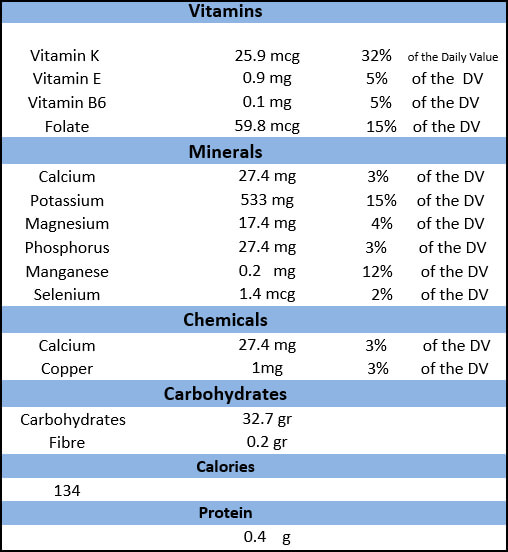Pomegranate Juice
We ( modern people ) are not the first ones who discovered the health benefits of pomegranate. Ancient people as well, thousands of years ago, were consuming and used the pomegranate to treat many ailments such as sore throat, cough, skin problems and to expel tapeworms, as indicated in the study.
Pomegranate is such a fruit that you can see mentioned as divine fruit in many articles, old inscriptions, old medical writings or studies. However, in this article, we are going to talk about the juice of this divine fruit; namely pomegranate juice.
Ahead of time, it is important to note that pomegranate juice is almost as healthy as the fruit itself.
However, make no mistake, in addition to the health benefits of pomegranate juice; we will also look at nutrition facts, preparation, recommended daily allowance, potential side effects, the best time to drink and more about pomegranate juice. Let’s begin to examine everything about this nutritious juice one by one.
Pomegranate Juice Nutrition Facts
Pomegranate juice is a nutritious beverage that you can add to your diet without a second thought.
Experts, however, suggest preferring homemade juice over canned/bottled ones. In this way, you can retain the nutrients and avoid potential sweeteners.
Pomegranate juice provides a variety of essential nutrients for your body. But, the juice is famous for its rich phytochemicals and antioxidant contents.
Folate (vitamin B9) and vitamin K are highly available vitamins in pomegranate juice.
Moreover, the juice provides a decent amount of potassium and manganese.
According to the U.S. Department of Agriculture, one cup of ( 249 gr ) pomegranate juice provides:

Nutrition Facts of Pomegranate Juice (249 gr)
Pomegranate Juice Health Benefits
We have compiled 7 health benefits of pomegranate juice for you and tried to consolidate these health benefits with scientific evidence and experts’ views
Here are 7 convincing reasons why you may want to add pomegranate juice to your diet.
1- May Prevent Cancer
There are small-scale studies, suggesting that pomegranate juice might inhibit the growth of cancer cells.
Before we refer to these studies, it is worth noting what doctors and scientists say about diet and cancer. As they underline at every opportunity, there is no single food that can prevent cancer alone.
With this respect, expecting that pomegranate juice ( or any other food) will provide 100% protection against cancer would be a mistake. On the other hand, they state the importance of a healthy and well-planned diet against cancer.
In fact, the reason why pomegranate juice is associated with cancer prevention stems from its rich antioxidant content of the juice.
As stated in the report, antioxidants have the ability to neutralise free radicals that damage cells, resulting in cancer. Given the fact that pomegranate juice is packed with various antioxidants, the regular consumption of the juice may reduce the risk of cancer by helping the body to stand strong against cancer-causing molecules.
The juice is associated with the prevention of particularly both prostate and breast cancer. In laboratory studies, researchers found that pomegranate juice inhibits the reproduction of breast and prostate cancer cells (1) (2).
To Sum Up: More studies are needed to understand how effective pomegranate juice is in cancer prevention. Nonetheless, current laboratory studies and experts’ opinions suggest that pomegranate juice may be effective against certain cancers thanks to its anticancer nutrient content.
2- May Improve Memory
As getting older, changes occur in all parts of the body, and the brain is not an exception. The brain shrinks and certain things such as memory decline occurs unavoidably. In most cases, free radicals harm healthy brain cells and bring about cognitive impairments.
As we indicated in the previous section, pomegranate juice contains several antioxidants the human body needs to neutralise disease-causing free radicals. In light of this, it can be inferred that pomegranate juice can contribute to brain functions with its high antioxidant content.
Aside from the inferences, there are also studies carried out to evaluate pomegranate juice memory-protecting properties.
In a study; 28 subjects who were given pomegranate juice for 4 weeks showed a significant improvement in a verbal memory test.
To sum up: Pomegranate juice offers various health benefits thanks to its nutrient content. And, the brain might be one of the organs that get benefits from regular pomegranate juice consumption.
3- Lowers Blood Pressure
While introducing the nutrition facts of pomegranate juice, we highlighted particularly the fact that pomegranate juice is a decent source of potassium, which has many significant roles in the human body. And, one of the roles potassium plays in the body is lowering blood pressure.
According to the American Heart Association; potassium is important in managing high blood pressure.
Even though high blood pressure is not too serious on its own, it can lead individuals to serious health conditions such as stroke and heart disease. Therefore, it is necessary to maintain healthy blood pressure.
Given the fact that one cup of pomegranate juice provides almost %15 of the daily potassium requirement, this natural beverage can be effective in lowering high blood pressure.
The study, conducted to evaluate the potential effects of pomegranate juice on blood pressure, found that the juice can lower systolic blood pressure and protect cardiovascular health as a result.
Note: we published a comprehensive, science-backed article that explains how pomegranate juice can lower blood pressure. If you are keen to read the full article, click here.
Summary; experts’ opinions and studies prove that pomegranate lowers blood pressure. We published
4- Potentially Ideal For Diabetics
The estimated glycemic load of pomegranate juice is 8, which is quite low and is suitable for people with diabetes. Briefly, the glycemic index is a value from 0 to 100 assigned to how much a certain food increases blood sugar.
To avoid blood sugar fluctuations, people with diabetes prefer foods with a low glycemic index.
In a study, 85 people with type-2 diabetes were given pomegranate juice and their blood sugar levels were measured after 3 hours. As per the results, the fasting glucose levels and insulin resistance in the participants were significantly low. Researchers attributed this result to the high antioxidant level of the juice.
To sum up: Although there are scientific studies and indications that convince us of the blood sugar-lowering effect of pomegranate juice, we encourage people with diabetes to consult with their doctors or nutritionists about adding pomegranate juice to their diet- if not included yet- to avoid any potential diabetes complications.
5- Potentially Beneficial in Arthritis
Briefly, arthritis is the swelling and pain of one or more joints, as Mayo Clinic describes. Scientific studies tell us that regular consumption of pomegranate and its juice can be helpful for arthritis.
The main reason why pomegranate juice and arthritis are mentioned side by side is related to the rich antioxidant content of the juice. These antioxidants may fight inflammation, thus providing relief for joints.
A study found that pomegranate extract reduces joint pain by almost %60 in rheumatoid arthritis patients. However, it was a small-scale study.
To sum up: More research and studies are required to comprehend the role of pomegranate juice in the treatment of arthritis. In any case, fruits and vegetables are super important against inflammation.
6-Reduces Inflammation
It is well-known that pomegranate has anti-inflammatory properties thanks to its high antioxidant level. Since the juice doesn’t lose the antioxidants when juiced, it has the same effect.
Chronic inflammation is associated with various diseases such as heart disease, diabetes, cancer, and bowel diseases, as stated in an article published in Harvard Health Publishing.
To prevent these kinds of serious diseases, it is important to eat foods with anti-inflammatory properties; Broccoli, berries, fatty fish, garlic and pomegranate to name but a few.
To sum up: As pomegranate juice provides a great number of antioxidants that reduce inflammation, don’t hesitate to add this juice into your diet to combat inflammation unless you have a special condition that prevents you from consuming it.
7- Protects the Skin
As we repeatedly said throughout the article, pomegranate juice contains a plethora of antioxidants that neutralise free radicals which cause cell damage.
According to a study; free radicals take a toll on the skin, which is the largest organ in the body and accelerate skin ageing. Not only do accelerate skin ageing, but they also bring about various skin problems such as wrinkles and dark spots by degrading collagen production in the skin.
The rich antioxidant content of the pomegranate juice can potentially prevent the skin from getting damaged by free radicals.
In addition to antioxidants, punicic acid that exists in the juice protects the skin by decreasing the skin damage caused by sun exposure.
To sum up: Healthy skin requires various things and one of them is a healthy diet. As pomegranate juice contains essential components for skin health, it brings nothing but benefits to the skin.
How to Prepare
Although canned or bottled pomegranate juices too can contribute to your health we encourage you to drink a homemade and artificial, sweetener-free juice. However, extracting the red seeds (arils) might appear to you a long shot. But, considering the amazing taste and potential health benefits it is definitely worth striving for.
Instead of explaining the best preparation method with words, we decided to share an informative video that illustrates how to obtain pomegranate juice at home.
If you haven’t got a blender, you can simply use a citrus press or a lemon squeezer to obtain the juice.
Is it Okey to Drink Pomegranate Juice every day?
As long as the daily consumption isn’t excessive, there is no known drawback of drinking pomegranate juice every day. On the contrary, many health benefits we mentioned above require regular consumption.
How much is too much?
Irrespective of how healthy it is, as we all know, too much of a good thing is a bad thing. Therefore, despite promising health benefits it is important to drink the juice in moderation. In this way, you can reap the health benefits.
There are many variables to consider, such as; age, health condition, weight, height and genetic factors. For this reason, it is hard to determine the right amount of daily pomegranate juice intake. However, 1 cup of juice every day would be ideal for most people.
Does pomegranate juice help you lose weight?
Before answering whether or not the juice helps you lose weight, it is important to note that there is no single food that magically burns body fat and makes a person slim.
Weight loss is a process that requires many things such as patience, exercise routine and indeed a well-planned diet. Among them, as you would guess, diet is the most important factor.
As for the question “does pomegranate juice help you lose weight? ” yes, it can aid in losing weight. In fact, this nutrient-dense juice helps you lose weight in 3 different ways.
1- If you have a habit of drinking unhealthy, sugar-loaded beverages you can replace them with fresh low-calorie pomegranate juice. In this way, the juice can help you lose weight, but in the long run!
2- The juice contains polyphenols which are micronutrients. According to a study, these micronutrients can decrease body weight, blood pressure and blood glucose.
3- As we mentioned many times in the article, juice contains key nutrients for the human body. These nutrients will make you feel more energetic. As a result of a more energetic version of you, you may become more willing to do exercise which is a vital component of the weight loss process.
Is it safe to Drink Pomegranate juice on empty stomach?
There is no known harm to drinking the juice on an empty stomach. However, it would be good to drink half a glass of water before drinking the juice.
When To Drink?
Drinking the juice in the morning would be a wise decision. However, once again drinking a half glass of water before the juice is good for you.
The juice is full of key nutrients which will help your body to wake up and defeat the morning grogginess. Moreover, the juice is high in water. By consuming this nutritious juice you can feel more energetic during the day.
What’s more, pomegranate is one of the rare fruits that can lower melatonin, known as the sleep hormone. Therefore, it is best to drink the fruit in the morning than evening and at night.
Pomegranate Versus Pomegranate Juice
One may think that the healthier the pomegranate, the healthier the juice is. While both the juice and the fruit are exceptionally healthy, there are some minor differences between them in terms of nutritional values. Let’s take a look at these little differences
Although drinking fresh juices is quite healthy, experts underline the fact that eating whole fruit provides more nutrients to the body.
Dr Christopher S.Baird stated, ” While drinking 100% fruit juice is certainly healthy, nothing beats drinking a cup of water and eating a whole fruit raw.”.
It applies to pomegranates too. That is the indication of the fact that when a pomegranate juices, it may lose some of its nutrients.
Here are the nutrients pomegranates may lose when juiced.
A) Vitamin C
As we all have heard, pomegranates are rich in vitamin C. To be more specific; a whole pomegranate meets almost 50 per cent of your daily vitamin C intake. However, when it is juiced, the fruit loses much of its vitamin C content.
According to USDA; one cup of pomegranate juice contains 0.2 mg of vitamin C whereas the fruit contains roughly 26 mg of vitamin C in the same amount.
The conclusion is: eat the whole fruit rather than drinking its juice to get more vitamin C.
B) Fiber
Fibre is an important nutrient, playing a vital role in digestion. The problem is when fresh fruit or vegetable is juiced, they lose much of their fibre content, according to Mayo Clinic.
Pomegranate ( 250 gr ) contains 4 gr fibre which diminishes to 0.2 gr when juiced, according to USDA.
The conclusion is; to eat the whole fruit rather than drinking its juice to get more fibre.
Potential Side Effects of Pomegranate Juice
Unless you consume this nutritious juice in large amounts, it has virtually no side effects. Nevertheless, it is good to remind ourselves of the following;
1- Allergies
Even though it is quite rare some people may have allergic to pomegranates, and therefore, may show some reactions upon consumption. Among the symptoms, there are; itching, itchy throat, hives, swelling and runny nose.
2- Blood Pressure
As we discussed earlier, juice has the ability to lower blood pressure. While this is good for people with high blood pressure, it might induce a problem for those who have hypotension( low blood pressure), when consumed excessively. The juice as well as the fruit, may lower blood pressure too much and thus may cause unwelcome situations. Therefore, if you have hypotension or if you use blood pressure-reducing drugs, we encourage you to consult with your doctor before adding the juice to your diet.
3- Surgery
As we mentioned above, juice affects blood pressure. Therefore, if you have a scheduled surgery, you may consider talking to your doctor about pomegranate consumption before the surgery.
The bottom Line
Food is one of the most important components of our lives. Opting the healthy foods promise a healthier life for all of us.
While pomegranate juice won’t improve your health instantly and magically, it can definitely contribute to your health in many ways with its nutrient contents in the long run. Especially the phytochemicals and antioxidants present in the juice can invigorate your immune system which defends the body against harmful molecules.
As we always say, whatever you drink or eat, make sure you consume it in moderation. In this way, you can reap the benefits.
Tarkan is an experienced health writer ( currently more than 600 articles ) and also the founder of this website namely www.neededforhealth.com. His expertise in health stems from in-depth medical research and knowledge which he obtained over the course of many years.
Tarkan enjoys sharing factual knowledge on health, psychology and nutrition. He always aims to deliver evidence-based recommendations, provide links to related scientific studies.





